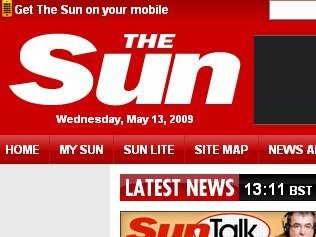Bring on the wall! Paying for news isn't new
Quality content has always had a hidden cost

As John Lennon sang in 1963, "The best things in life are free - but you can give them to the birds and bees. I want money!"
We suspect the same song is booming from boardrooms all around the world: first Rupert Murdoch's News International says it's going to start charging for content; then, Johnston Press starts putting its local papers behind paywalls; and then, it turns out that Google is limiting free access to news sites.
It's the end of free!
Not really. Paywalls have been around for ages - never mind newspapers: Fark.com has its TotalFark premium area, MetaFilter costs five dollars to join, Slashdot will hide the ads for a fee, Ars Technica has a premium offering and all kinds of specialist publications charge for access.
But what's different about firms such as News International and Johnston Press is that they're taking a pretty big leap into the unknown.
We know people will pay for niche content that's directly relevant to their jobs or their hobbies, but will they pay for general stuff - The Sun, for example, or even access to their local paper?
Quality news comes at a cost
Get daily insight, inspiration and deals in your inbox
Sign up for breaking news, reviews, opinion, top tech deals, and more.
The news organisations will be hoping that the answer is yes, because despite all the hype internet advertising simply doesn't pay the bills.
The idea of armies of reporters, photographers and editors roaming the earth, gathering news and serving it up for free is a lovely one, but until housing, alcohol, public transport and baked beans are free it's a rather naive one. News - proper news, that is, not rumour-mongering and PR puffery - costs money.
Then again, if publishers implement things in too heavy-handed a manner then their paywalls simply won't work. We ended up on HotPress.com - the Irish NME - the other day looking for an article - an article that turned out to be behind a paywall.
The only way to read it was to subscribe for a year, which would have cost 20 Euros. That may be a bargain if you're going to spend a year reading Hot Press online. It's not so good when you're only interested in reading a single story and don't have the slightest intention of coming back. That's like trying to buy a single and being forced to buy every album the artist's ever recorded.
Is universal access at risk?
So is that a vision of the future? We hope not, because one of the great things about the internet is that it provides access to pretty much anything. If big chunks were to disappear behind overly expensive paywalls, that would be a shame.
Then again, perhaps that's better than the alternative: content not being produced at all because there's no money to pay for its creation.
That's what publishers fear about Google's power: it's devaluing content to the point where there isn't enough money to pay for its creation. As Nicholas Carr explains, "Google prevents them from making decent money online - by massively fragmenting traffic, by undermining brand power, and by turning news stories into fungible commodities. Individual newspapers can't live with Google, but they can't live without it either".
With online advertising generating a pittance compared to print, that means publishers have two options: persuade all of their peers to join them in a mass exodus from Google, which isn't very likely, or try and make money from the small but lucrative proportion of readers willing to pay for their digital newspapers.
The surprise isn't that they're trying option number two; it's that it's taken them so long to do it.
-------------------------------------------------------------------------------------------------------
Liked this? Then check out Marissa Mayer on the future of Google
Sign up for TechRadar's free Weird Week in Tech newsletter
Get the oddest tech stories of the week, plus the most popular news and reviews delivered straight to your inbox. Sign up at http://www.techradar.com/register
Writer, broadcaster, musician and kitchen gadget obsessive Carrie Marshall has been writing about tech since 1998, contributing sage advice and odd opinions to all kinds of magazines and websites as well as writing more than a dozen books. Her memoir, Carrie Kills A Man, is on sale now and her next book, about pop music, is out in 2025. She is the singer in Glaswegian rock band Unquiet Mind.
